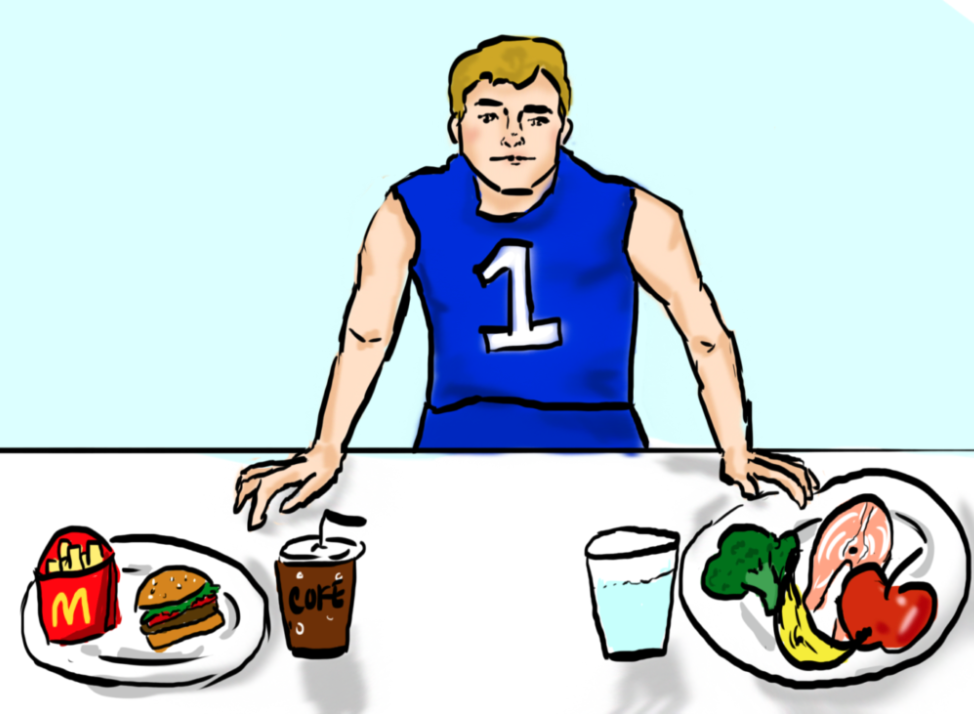Nutrition is one of the most important aspects of sports, but it is not emphasized nearly enough in high school athletics. The reality is that the majority of high school athletes do not know how to properly fuel themselves. This problem has dangerous effects like injury, burnout, and deficiencies which can later hurt their college careers.
In high school athletics, nutrition can be a major factor in performance. Ashley Chen ’23 attests to this, saying the quantity, quality, and timing of eating food can dictate the quality of her performance.
“Sometimes when I eat right before practice I feel really sick. Also, if I skip breakfast or eat [a] quick, light [breakfast], I definitely notice it impacting how I feel during my [tennis] matches,” Chen said.
But with a lack of information regarding nutrition, these instances are unfortunately the norm for many athletes at PHS. With the new schedule, student-athletes have to get home when school finishes at 1:00 p.m. to prepare lunch and eat before practice starts two hours later. Two hours is not nearly enough time to digest food and can result in feeling sick during practice.
Athletic performance requires two main aspects: energy for movement and muscle growth to repair body tissues broken down by exercise. Carbohydrates and proteins are respectively responsible for these aspects. As such, it is of paramount importance that athletes eat not only before practices and matches to give them energy but after to help their muscles recover.
But, what is “enough food?” This varies from athlete to athlete. While some may feel full after two apples, others need a full meal to feel prepared. As a guideline, in an article published by childrens.com in 2021, doctors suggest that “athletes should eat a balanced meal containing carbohydrates, protein, and fruit or vegetables.” Athletes should also try to eat three to four hours before playing in order for proper digestion to occur. Snacks can also be a good way to get some nutrition in before big games.
The effects of improper nutrition are traumatic. They can lead to injuries and deficiencies, which prevent people from doing the sport they love the most. These consequences were experienced by runner Audrey Peel ’22, who has been suffering an iron deficiency for the past couple of years.
“Having an iron deficiency made my muscles feel really weak while running, which was especially noticeable in my races. I think that the hardest part was when I didn’t know I was iron deficient and saw my times going up; it made me really second guess my athletic ability,” Peel said.
If a student consumes too little iron, over time, their body can become iron deficient. Examples of iron-rich foods include meat, eggs, leafy green vegetables and other iron-fortified foods. If Peel and other athletes who have these deficiencies were aware of the consequences, they could have gotten tested for it earlier and had the problem resolved earlier.
However, fueling is not all that makes up sports. Although it is important to eat healthy and enough food, athletes should remember not to go overboard. Eating ice cream three days before your game will have negative effects on your performance.
The confusion around eating and athletics is largely because the “correct” foods that maximize athletic performance varies among the different athletes and sports. But, general guidelines and awareness of the issue can be spread to ensure that athletes know how their fueling impacts their athletic performance and prevents dangerous consequences. However, it is encouraged that all athletes remember that nutrition, although important, is not the end-all be-all to athletic success. Attitude, mindset, and other factors play an equally important role.
